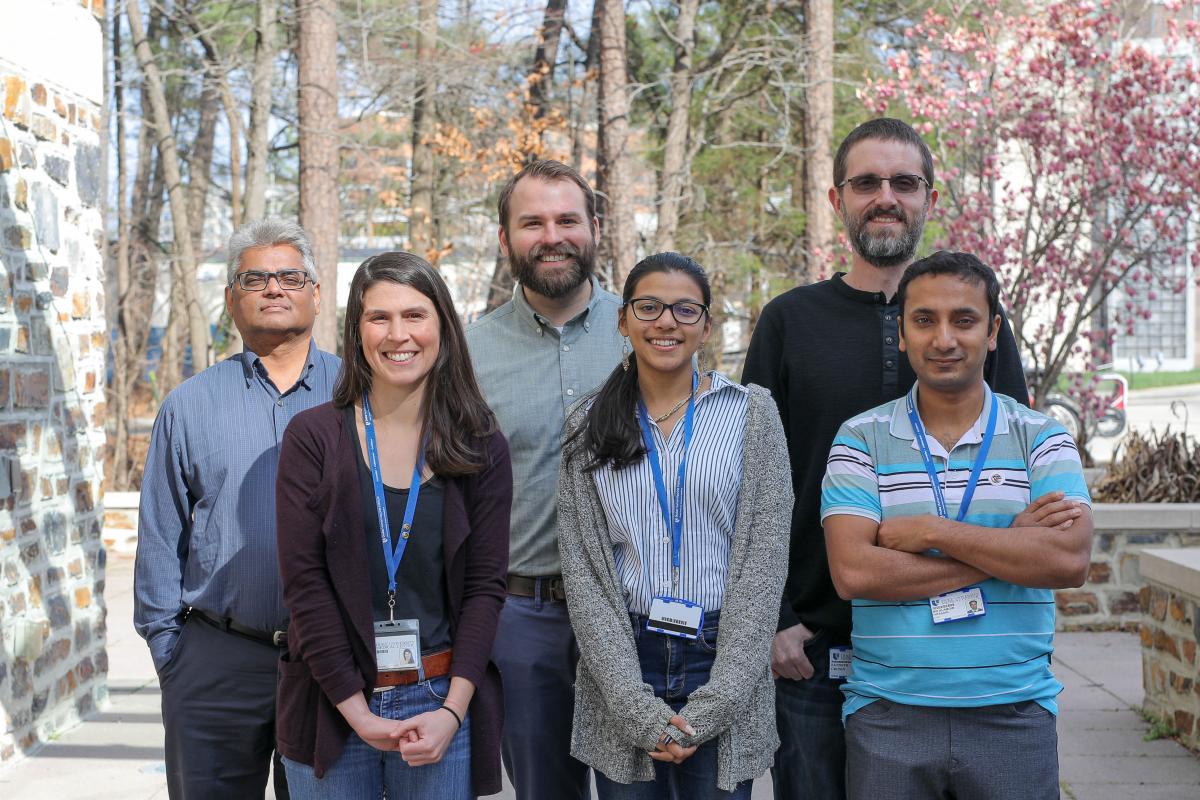The Alam laboratory’s primary research, led by Dr. S. Munir Alam, is focused on understanding the biophysical properties of antigen-antibody binding and the molecular events of early B cell activation using the HIV-1 broadly neutralizing antibody (bnAb) lineage models. We are studying how HIV-1 Envelope proteins of varying affinities are sensed by B cells expressing HIV-1 bnAbs or their germline antigen receptors and initiate early signaling events for their activation. In the long-term these studies will facilitate design and pre-selection of immunogens for testing in animal models and accelerate HIV-1 vaccine development.
R01 Project: Antigen recognition and activation of B cell antigen receptors with the specificity of HIV-1 broadly neutralizing antibodies.
This research project involves elucidating the early events on the B cell surface following antigen (Ag) engagement of the B cell antigen receptor (BCR) and to provide an assessment of the in vivo potential of an Ag to drive B cell activation. The program has three Projects, each with a specific aim that is centered on how HIV-1 Envelope Ags are sensed by BCR on B cells that participate in anti-HIV-1 immune responses that generate bnAbs. In Project 1, we are performing biophysical interactions analyses and using high-resolution microscopy to define the physico-chemical properties of BCR-Ag interactions that govern signaling and activation thresholds for BCR triggering and the BCR endocytic function in antigen internalization. In Project 2, we are using nanoscale resolution assays to study Ag-binding properties that induce nanoscale BCR conformational opening, the role of costimulatory and regulatory molecules and the spatio-temporal reorganization of the B cell membrane following activation with Ags. In Project 3, we are testing characterized immunogens for their ability to activate bnAb germline B cells in naïve knock-in (KI) repertoires by evaluating the magnitude and quality of Ag-specific responses that priming immunogens induce in KI models during immunization. The overall objective of these studies is to bridge the quantitative biophysical and membrane dynamics measurements of Ag-BCR interactions to ex-vivo and in-vivo B cell activation. This NIAID-funded research is a collaboration with co-investigators Professor Michael Reth (University of Freiburg, Germany) and Dr. Laurent Verkoczy (San Diego Biomedical Research Institute, CA).

HIVRAD Project: Immunogen Design for Induction of HIV gp41 Broadly Neutralizing Antibodies.
This research project addresses the critical problem of vaccine induction of disfavored HIV-1 antibody lineages, like those that target the membrane proximal external region (MPER) of HIV Env gp41. This program combines structure and lineage-based vaccine development strategies to design immunogens that will induce bnAb lineages that are not polyreactive and therefore easier to induce. The overall objective of this program grant is to develop and test sequential immunogens that will initiate and induce HIV-1 bnAb lineages like the potent MPER bnAb DH511. Using a germline-targeting (GT) epitope scaffold design and a prime/boost strategy, we are testing induction of DH511-like bnAbs in knock-in (KI) mice models expressing the DH511 germline receptors. The program project has two research projects and an animal core. In Project 1, led by Dr. William Schief (The Scripps Research Institute, CA), GT-scaffold prime and boost immunogens as nanoparticles are being designed with the potential to activate B cells bearing diverse bnAb precursors. The two aims of Project 2, led by Dr. Munir Alam, are (i) using computational tools developed by Dr. Kevin Wiehe at DHVI, to define key improbable somatic mutations that candidate immunogens will need to select and that lead to bnAb induction; and (ii) to test and define immunogens derived from Project 1 that activate DH511-like bnAb precursors in DH511 KI models. The DH511 UCA and intermediate KI models are being developed by the animal core PI Dr. Ming Tian at Harvard University.